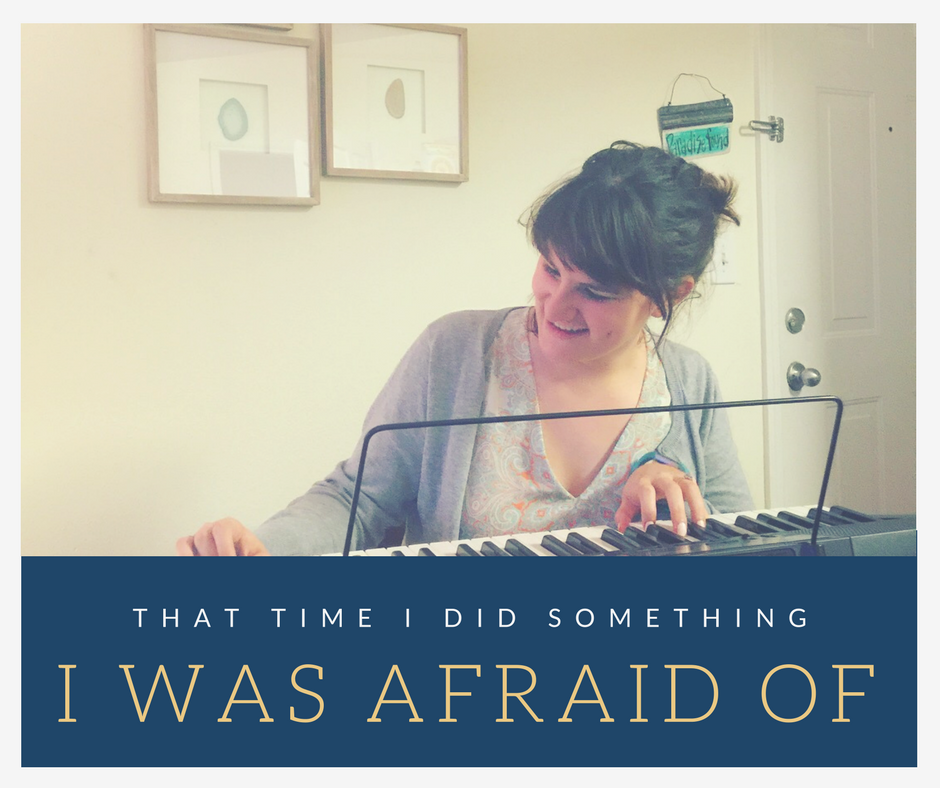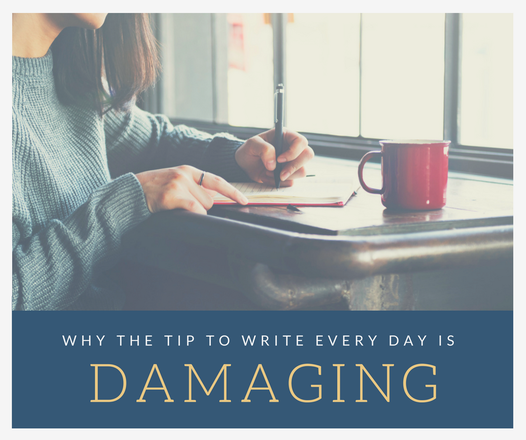|
I was beyond excited to be featured in the incredible line-up of WriteOnCon 2019! I went live at the end of the first night, Friday February 8th. During my hour long session, I answered questions about social media management, specifically for writers trying to navigate that space. Several hundred people reported in live to watch me speak, but you can watch me live now by clicking the video below!
1 Comment
As an aspiring writer, I’ve often been told/ seen the tip floating around that, to become a professional writer, I have to write every day. While that may be true for some writers, I can’t do it.
That’s right, you heard it first here, folks. Confession time: I just can’t be the writer who writes daily, which is a big deal for me to confess because I’ve been trying for years to be that person. I’m hoping that sharing my struggles with this idea might help others who are facing a similar wall in their writing journey. Holding myself to this standard of writing every day has been utterly exhausting. Trying to be someone who wakes up at 5 AM every morning to spend an hour of writing or someone who stays up way past bedtime just to sneak in those extra words made me an empty shell. Day after day I’d come home from work and beat myself up for not having written yet. I’d go to bed angry and disappointed, stressed out and sad.. It was terrible on my mental health and confidence. It spiraled me into a dark place where I wasn’t creating anything because I felt like such a failure after continuously not meeting this standard. It made writing stressful and exhausting, and it became a problem. Here’s what I learned after finally realizing that maybe it’s okay not to write every day. There is a difference in writing every day and spending quality time honing your craft and finishing your creative projects. There is a difference in forcing yourself to sit down at the computer when the bags underneath your eyes have bags and when you’re staring at the blank page with a well-rested spirit. There is a difference between forcing yourself to work and allowing your tired, over-worked brain to freakin’ relax. The difference, of course, is the quality of work you create. You want good quality work? Give yourself what you truly need first. It’s okay to spend the work week not writing at all and then to spend the weekend diving deep into your craft and enjoying the time within your worlds. It’s okay to spend your early mornings and late evenings taking care of yourself, resting, or enjoying the little spare time you have. It’s okay to pick your cats or your boyfriend or food instead of squeezing in that word count for the day. Whatever you do and however you write, it’s good and okay. It’s important, maybe even more important than writing and creativity itself, to remember to take care of yourself. Don’t let yourself go to a dark, sad place if you didn’t hit that word count today. Take a deep breath, remember writing every day may not be your path to your goals, and love yourself and your brain. Above all, do what works best for you. Don’t feel conflicted if writing tips you encounter don’t apply to you. If I had the schedule where I could write every day, I would. But, maybe I wouldn’t. Maybe there would be days, in this reality where I was a professional writer, where all I could do would be take naps, watch Chopped, and cuddle with my cats. Say it with me, the writing tip that you MUST write every day to be a good writer is damaging. Frankly, anyone who says you must do one thing to become this one thing is damaging. One of the best parts about writing is how many diverse ways there are to get the job done. Let’s embrace that more. Do you agree with me? Do you think writing every day is essential to being a writer, or do you think that tip is stupid? Let me know in the comments down below! As always, I hope you have a beautiful day. Check out the other parts of my website if you ever find yourself in need of writing, editing, or photo services.  I am not a brave person. I don’t pretend to be. I would much rather be sprawled across my couch with my cats and boyfriend than out hunting for adventure, or even out where a lot of people are. Oh, also, I startle at most loud sounds, and I hide under blankets during the scariest parts of movies. However, I’ve noticed that this this lack of bravery affects how I interact with people. I don’t speak up for myself as often as I could, I just go along with what everyone else wants even if I really don’t want that, and I think far too often that I am annoying someone even if all I am doing is asking them a question. As I stepped over the threshold of student into full-fletched adult, I made it a goal of mine to start being a bit braver. They say the first step in fixing a problem is recognizing that it exists, and I completely believe that. Because even discovering a problem was hard work. It’s not like I woke up one morning and magically thought, “Hmmm, I am going to fix my fear of fear once and for all!” I didn’t really recognize I had a problem until I dug more into self-help articles and spent more and more time analyzing my own emotions. I’ve been doing those bad habits for years and years, but it wasn’t until these past few months (when I had to do things like find new friends or discover my place in a completely new location or own pets) that I saw the problem and knew it needed to change. And it wasn’t going to be pretty. I started deciding to do things like tell a waiter they brought me the wrong food or it wasn’t cooked well, communicate to any sale associate or hair dresser exactly what I wanted, and canceling plans if I didn’t want to go. These were super small steps, but these were things I wasn’t doing earlier. Through doing these things, I find myself being okay in arguments instead of collapsing into a puddle of tears. I found myself okay with telling someone I disagreed with them. I found myself okay with discussing big issues with other people. The big whammie that happened, however, was when I heard myself saying out loud, “I would love to play for the worship band.” I took piano lessons for years when I was younger, and always the worst part of the process for me were the recitals. I would grow sick, sweaty, and shaky within hours of the time I would have to stand up and play. And, here I was, putting myself in the position where I would possibly be doing those things regularly. Of course, the nerves came full force. I had plenty of nightmares of doing horribly or completely missing my call time. I had many panic attacks during work on the first day of rehearsal, like 8 hours before I was even due to play. I found myself wiping my fingers off of my jeans moments before, found myself praying harder than I have ever prayed before as I climbed the stage to the keys. But, here’s the thing, I did it. A girl who is was consumed with anxiety and stage fright, got in front of her entire church and played an instrument (MIND YOU, there was one song that had a big solo) where people could hear when and where I went wrong. It’s crazy, and I may be a little insane, but I did it. After surviving that experience and not playing a single wrong note, here are the five takeaways so I’m not just talking about myself, and you can learn something too:
What do you think? Are you afraid of something and is it blocking your way of living? Or do you think I’m just dumb? Let me know in the comments! |
Archives
December 2023
Categories |


 RSS Feed
RSS Feed
